The News
It was no secret Xi Jinping would secure a third term as China’s leader at the end of the Chinese Communist Party’s congress this week, the latest step in his consolidation of control, and media across the Sinosphere made sure to highlight his relentless takeover of power.
Here’s a look at how some of the top newspapers from mainland China, Hong Kong, Taiwan, and Singapore covered the news.
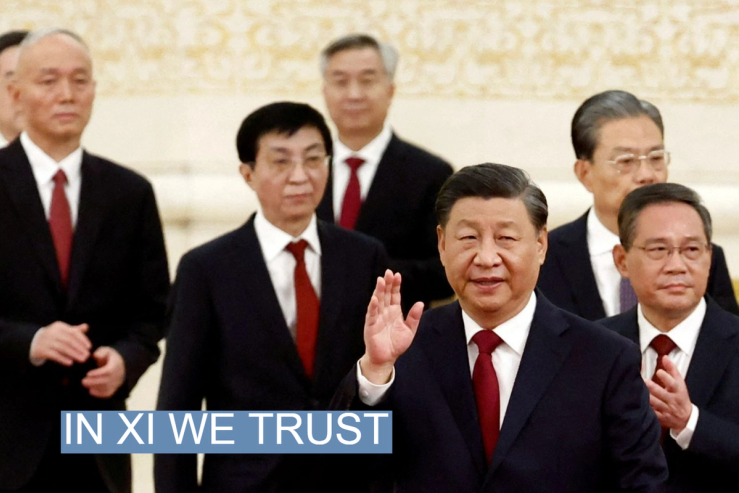
Know More
The People’s Daily, the Communist Party’s mouthpiece, dedicated a special edition to the culmination of the congress, providing a summary of which members were appointed to the Politburo and its Standing Committee — the highest echelon of Chinese politics.
But the paper made no secret of the central role played by Xi, reminding readers that the entire country must submit to his iron fist for the “rejuvenation of the Chinese nation.”
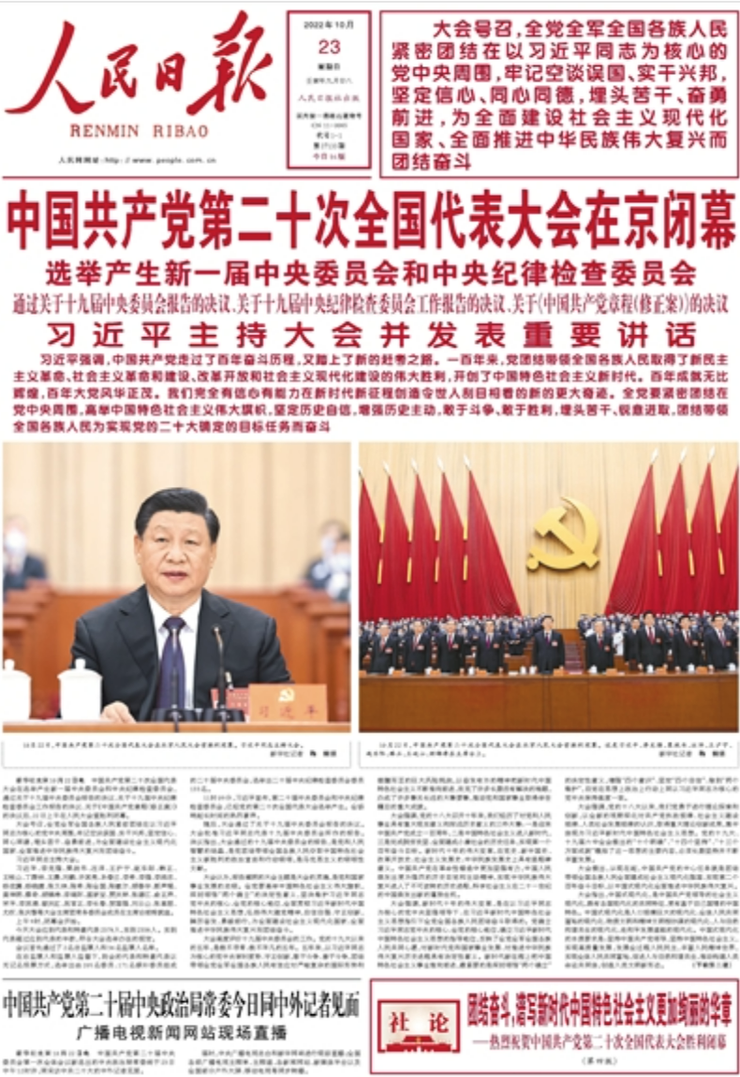
Historically, the party’s general secretary had been a representative for the collective leadership of the Standing Committee. Xi has circumvented this tradition, and People’s Daily noted that the congress reinforced the notion of “two establishments” — a political slogan adopted by the Party that stresses Xi as the core of the Politburo Standing Committee, and enshrining “Xi Jinping Thought” as the keystone political philosophy that will guide the nation forward.
Quoteworthy
“The century-old achievements are incomparably brilliant, and the century-old party is flourishing,” People’s Daily wrote. “We are fully confident and capable of creating new and greater miracles that will impress the world in the new era and new journey.”
The View From Hong Kong
With many pro-democracy newspapers shutting down in Hong Kong since the 2020 imposition of a national security law — draconian legislation that effectively scraps citizens’ and media rights to openly criticize Xi or the Communist Party — Sunday editions of the city’s once rambunctious Chinese-language newspapers largely consisted of Beijing’s propaganda.
Ta Kung Pao, Hong Kong’s main pro-Beijing publication, described Xi’s next term as a “new era and new journey to create new miracles.” Like the People’s Daily, the newspaper provided an overview on committee assignments and Party promotions.
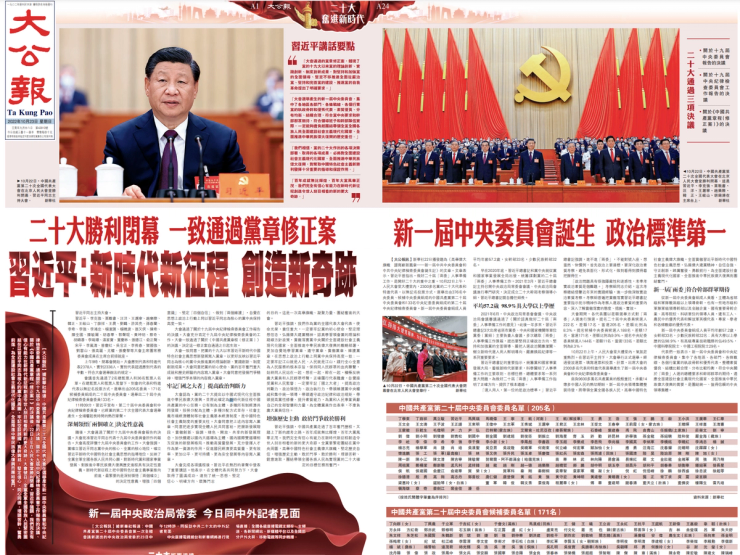
Another newspaper, Ming Pao, offered more critical, albeit subdued, coverage of the congress’ last day, with its font page headline focusing on the retirement of premier Li Keqiang and Wang Yang, members of the Standing Committee largely seen as counterbalances to Xi’s authoritarian policies.
Quoteworthy
“The whole party, the whole army, and the people of all ethnic groups in the country share the same aspiration for the cause of the party and the country in the new era,” Ta Kung Pao wrote.
The View From Taiwan
United Daily News, one of Taiwan’s biggest newspapers, described the congressional week as “a win for Xi’s army” in its front page headline. The paper accompanied that story with an image of Xi’s predecessor, Hu Jintao, being escorted from the Great Hall of the People, what many pundits saw as a carefully-orchestrated show of Xi’s growing power.
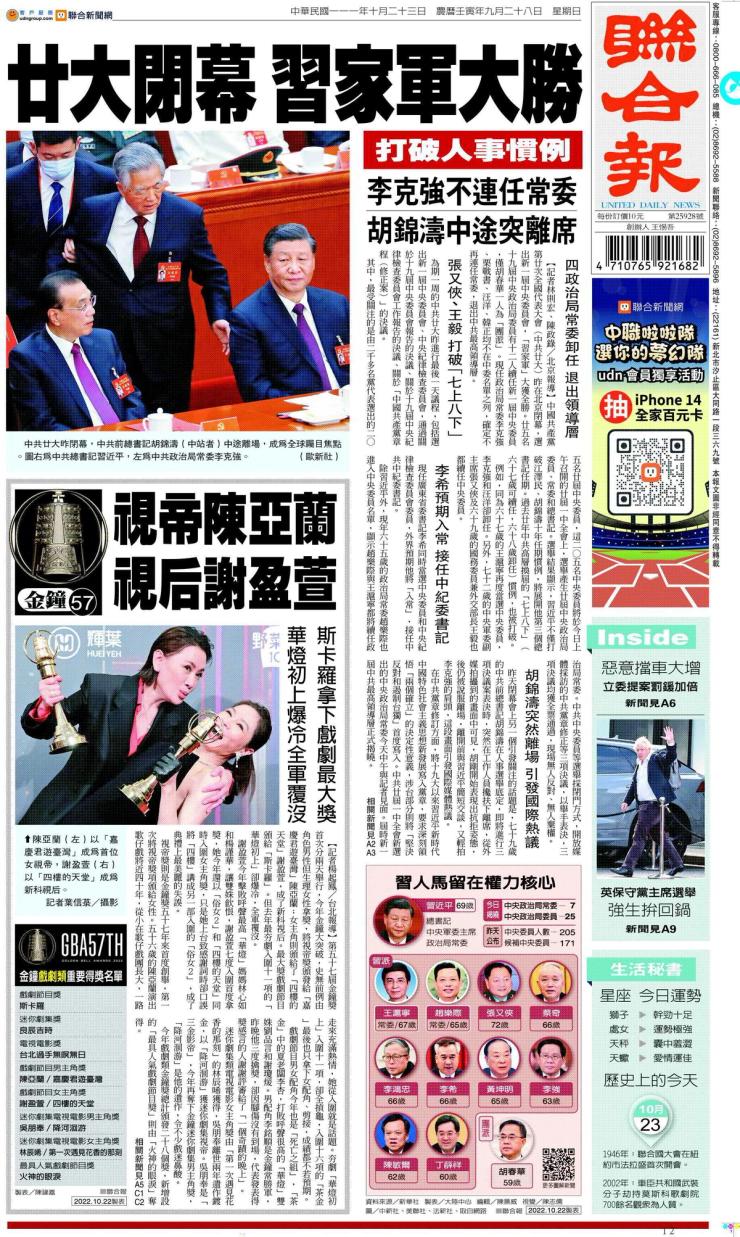
Neither United Daily nor its competitor, Liberty Times, offered extensive coverage of the congress, and neither offered commentary on what Xi’s third term would for the island.
Quoteworthy
“It can be seen in the picture that Hu initially showed a gesture of resistance, but was persuaded to leave the venue ... This scene caused heated discussions in the international media.” — Untied Daily News
The View From Singapore
Lianhe Zaobao — the largest Chinese-language newspaper in Singapore — described Xi’s reshuffling of the Standing Committee as “beyond the expectations of the outside world,” stressing that the departure of Li and Wang offered a sign that Xi was taking no chances when it came to who he wanted as his closest confidants.
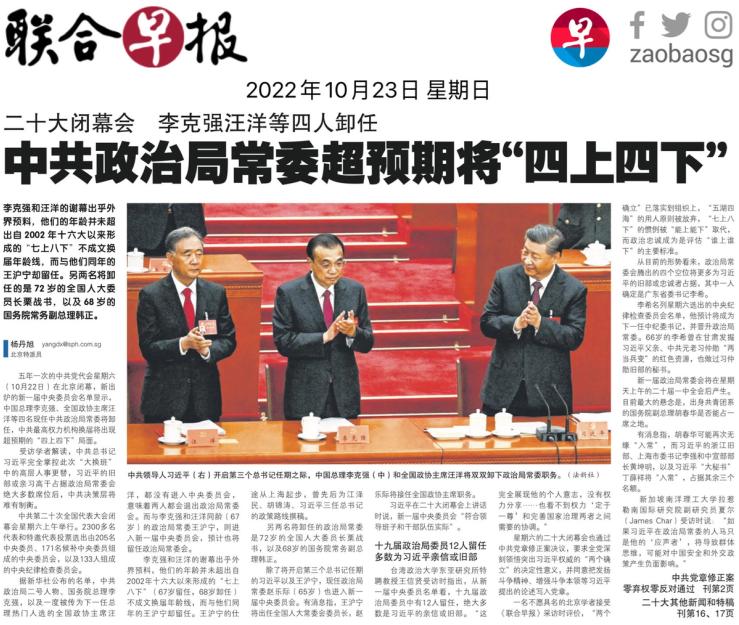
The newspaper was more critical of the new Standing Committee, interviewing scholars who offered commentary as to why the committee offered little hope for a more open and free China.
Quoteworthy
“If Xi Jinping’s people in the Politburo Standing Committee are just his ‘voices,’ it will lead to groupthink, which may be detrimental to China’s security and have a negative impact on foreign affairs.” — James Char, professor of International Studies at Nanyang Technological University, interviewed by Lianhe Zaobao.
More Semafor
We also make videos!

